2020 Conference Blog- Day 3
January 28, 2020
Session 6. Stakeholders in Change. Jim Larimore (ACT), Jim Montoya (College Board), Michael Reilly (AACRAO), & Joyce Smith (NACAC)
(No slide deck used)
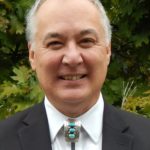 Jim Larimore is Chief Officer for the Center for Equity in Learning at ACT, where he leads ACT’s strategy to engage students, families, educators and communities to promote equity in learning and workplace success. Larimore’s team develops programs, research and partnerships to improve college and career readiness and success for all students.
Jim Larimore is Chief Officer for the Center for Equity in Learning at ACT, where he leads ACT’s strategy to engage students, families, educators and communities to promote equity in learning and workplace success. Larimore’s team develops programs, research and partnerships to improve college and career readiness and success for all students.
Before joining ACT five years ago, Larimore’s career in higher education focused on college access and student success. He served as deputy director for student success at the Bill & Melinda Gates Foundation, and as a student affairs leader at campuses including Stanford, Dartmouth, Swarthmore and NYU Abu Dhabi in the United Arab Emirates. His postsecondary career began as assistant dean and director for the American Indian Program at Stanford. Larimore serves on the Board of Directors for the Iowa City Community School District Foundation, and the Leadership Giving Advisory Board for United Way of Johnson and Washington Counties. He currently serves on the Board of the Branch Alliance for Educator Diversity, and as an Advisor for Michelle Obama’s Reach Higher Campaign, the Aspen Institute’s Forum for Community Solutions, the United Negro College Fund’s Career Pathways Initiative, the Center for Postsecondary Readiness and Success at American University, and the Hope Center for College, Community and Justice at Temple University.
Jim Larimore began by sharing three clear areas for his talk:
- Defining reality related to problems that we are trying to solve
- Provide a little historical context
- Focus on a few ideas for moving forward
Larimore shared a quote from Winston Churchill: “You can always count on Americans to do the right thing – after they’ve tried everything else.” Larimore suggests that the social contract between the US taxpayers and secondary education has resulted in higher education feeling entitled. After WWII and the creation of the GI Bill, government agreed to fund research in the universities and part of the bargain was to advance the creation of knowledge, advance technologies, and serve the public interest. We may be putting our legacy of public support at risk if we move forward from an entitled perspective.
Access is part of the post-secondary mission and it is fair for the public to expect that students would be supported beyond access. Acceptable rates of attrition were not part of what the public perceived as the bargain. The erosion of public trust did not occur overnight.
Larimore shared his frustrations in that we are still stuck on trying to think our way through things and don’t manage to get unlocked from our own perspectives and institutional interests. Our own interests must be subservient to the greater good. We must have a sense of honesty and humility, be willing to accept the honest critique of others without getting defensive, and look at our own language. For example, we talk about low-income/high-income. Larimore suggested that we consider the term “ALICE” instead: Asset Limited, Income Constrained, Employed.
We really need to think about how we rewire or change the defaults for people. He cited administrative burdens that we impose on families that might not be all that necessary.
Some solutions Larimore proposed included:
- Need to rewire or change defaults. For example, in Connecticut, any student who graduates from high school is admitted to the state’s public colleges and universities. This admit letter is sent to all seniors! We need to think what administrative burdens or hassles we’re imposing on our students to even access higher education.
- FAFSA. Have 8th graders do a non-binding projection so they know where they stand financially.
- Postsecondary education raised about $37B from philanthropic sources last year. Commit 10% of money raised and pay off student debt!
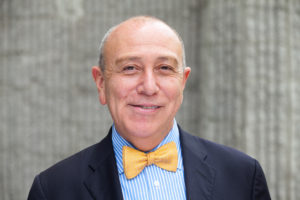 Jim Montoya leads the College Board’s membership, governance, and global higher education teams, managing large-scale, high-impact initiatives that promote equity and access for all students. In this role he directs efforts that engage, support, and mobilize College Board members—including events, conferences, and outreach campaigns. In his role as Secretary of the Corporation, he oversees all matters relating to our governance structure and Board of Trustees. Additionally, he directs our work with higher education institutions and leaders across the globe. Working with constituents across K—12 and higher education, Montoya and his team ensure that the College Board meets the needs of our diverse member institutions and the students they serve.
Jim Montoya leads the College Board’s membership, governance, and global higher education teams, managing large-scale, high-impact initiatives that promote equity and access for all students. In this role he directs efforts that engage, support, and mobilize College Board members—including events, conferences, and outreach campaigns. In his role as Secretary of the Corporation, he oversees all matters relating to our governance structure and Board of Trustees. Additionally, he directs our work with higher education institutions and leaders across the globe. Working with constituents across K—12 and higher education, Montoya and his team ensure that the College Board meets the needs of our diverse member institutions and the students they serve.
Before joining the College Board in 2001, he served Stanford University as vice provost for student affairs and as dean of admission and financial aid and taught through the Center for Comparative Studies in Race and Ethnicity. Prior to his years at Stanford, Montoya held senior leadership positions at Occidental College and Vassar College, respectively. Montoya is active on a number of boards and committees, including the board of directors of the Student Leadership Network in New York City, and the advisory board of the World Leading Schools Association. He earned his bachelor’s degree with academic distinction and his master’s degree in educational policy from Stanford University.
Next, Jim Montoya began his talk by noting that all of us are part of something really big globally–changing the lives of millions of students and their families. In 1960, 13 million students accessing higher education. By 1995, that grew to 82 million and by 2025 it we can expect 262 million students in higher education.
Montoya notes that it is important that we remain relative by remaining aware, sensitive, and supportive of the issues. Having a 45-year history with the College Board, Montoya says what they have learned as an organization is to truly embrace the needs of their members. Given the kinds of conversations that we are having, our initiatives need to be large-scale, high-impact initiatives. Collectively we need to be thinking about the changes that will impact higher education on a large scale because there are so many students at this time that are outside of the mainstream.
As we consider the role of transparency and responsibility, we need to know that they go hand-in-hand. Montoya emphasized the mission of the College Board to expand access and opportunity and that they will use their resources to remain relevant and use tools, such as testing, to support the mission of expanding access.
Montoya shifted to a focus on testing and the goal of measuring to expand access–but we must also think about who we graduate. We need to think about scores in combination–looking at grades, IB, AP, course schedule, and more. A part of responsible use of testing is making sure that staff are well trained in what the tool is, why it is used, and what it aims to measure. Montoya concludes by asking us to think deeply about the tools that we use and a spirit of collaboration to move the agenda forward.
Three ideas to consider:
- Given the cost of higher education, we need to think about a 3-year degree. Can’t just cram four into three years–need to rethink curriculum entirely!
- Large scale policy changes (veterans, women going from workforce back to college, etc) there are institutions that still require full-time enrollment. Part-time enrollment would open doors.
- What if we increased enrollment at the highly selective schools by 3-5% and reserve those spaces for first-generation and low income students?
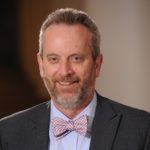 Mike Reilly has served as the Executive Director of the American Association of Collegiate Registrars and Admissions Officers (AACRAO) since 2012. Prior to coming to AACRAO he was the Executive Director for the Council of Presidents, an association of the six public baccalaureate degree granting institutions in the state of Washington. He has more than 25 years of experience in university administration, admissions and enrollment management, including having been the Associate Vice President for Enrollment Management at both Central Washington University and Humboldt State University. Reilly served on the American Council on Education Board of Directors and is currently on the College Board’s Access and Diversity Collaborative Advisory Council. He is a frequent writer and speaker on public policy matters impacting higher education.
Mike Reilly has served as the Executive Director of the American Association of Collegiate Registrars and Admissions Officers (AACRAO) since 2012. Prior to coming to AACRAO he was the Executive Director for the Council of Presidents, an association of the six public baccalaureate degree granting institutions in the state of Washington. He has more than 25 years of experience in university administration, admissions and enrollment management, including having been the Associate Vice President for Enrollment Management at both Central Washington University and Humboldt State University. Reilly served on the American Council on Education Board of Directors and is currently on the College Board’s Access and Diversity Collaborative Advisory Council. He is a frequent writer and speaker on public policy matters impacting higher education.
Mike Reilly spoke next and shared admissions acceptance rates from IPEDS (see slide Reilly Slide Deck). AACRAO also conducted a survey and asked how many nonacademic considerations were used in the decision process. Higher percentages of independent colleges used such factors. The vast majority tend to use an admissions index to sort their students with very traditional processes (GPA, standardized test scores, etc.). Very few engaged in a holistic approach. There has been some growth in self-reported data.
Reilly’s research (please see slide deck for details) also asked its members (higher education registrars and admission professionals) about their perception of independent admissions counselors. A large percentage were neither positive nor negative (33%), or had no opinion (22%), in terms of their perceptions. Thus there is a need to engage independent admission counselors in the solution to change in admissions as higher education professionals don’t know how or what they do.
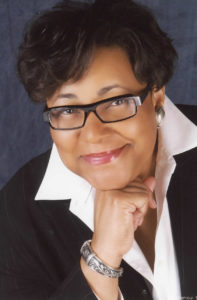 Joyce E. Smith is Chief Executive Officer of the National Association for College Admission Counseling (NACAC), an Arlington, VA-based organization of admission professionals from around the world dedicated to supporting students and families in the college preparation and transition process. Joyce was a practitioner, having worked in both public and private college admissions at Kansas State University, Amherst College (MA) and Queens College of the City University of New York, where she served as executive director of admissions for undergraduate and graduate admissions, marketing and scholarship services.
Joyce E. Smith is Chief Executive Officer of the National Association for College Admission Counseling (NACAC), an Arlington, VA-based organization of admission professionals from around the world dedicated to supporting students and families in the college preparation and transition process. Joyce was a practitioner, having worked in both public and private college admissions at Kansas State University, Amherst College (MA) and Queens College of the City University of New York, where she served as executive director of admissions for undergraduate and graduate admissions, marketing and scholarship services.
Joyce began her service in 1991 as NACAC associate executive director and later, acting executive director before being named NACAC’s executive director (now CEO) in February 1997. She is the longest serving Chief Executive Officer of NACAC with a record of 22 years. She currently serves as a member of the Scholarship America Board of Trustees. Joyce is also an association representative to the Washington Higher Education Secretariat (WHES), a voluntary forum for Chief Executive Officers of national higher education associations coordinated by the American Council on Education (ACE). Joyce has served more than 40 years in higher education and association management.
Joyce Smith closed the panel but describing NACAC as an organization that helps professionals help students make good post-secondary decisions. High school counselors from public and private schools, community based organizations, and private consultants are all part of their 15,000 members.
Smith said when she hears discussions about transparency, trust, core values, the actuality of realizing all of this is tough. It is hard to explain to the public why colleges have 60,000 applications and your kid is in the pile. It is hard to address the stress that kids are under in the process. It all speaks to the problem that we have all created by trying to compete, keep pace, and be higher ranked.
Having started out her career in admissions, Smith says she doesn’t know if she would go back to admissions if she could. The notion of sorting, mismatch, exorbitant numbers of applications to cull a relatively small class, is daunting. She notes as we think about our roles, she cites the collaborations in which NACAC is involved.
Smith concludes that the responsibility of regaining public trust falls on all of us. Those who run admissions operations should invites faculty, trustees, etc to participate in the review process. All of the things that are under assault (test scores, etc), is a huge challenge and the more who have a hand in the process, the greater the opportunity for results.
Next, Smith cited NACAC’s Code of Ethics (distributed to the audience) and elements that have remained steady for decades. She asks all to take the issues to play and is revising their own Code of Ethics. They receive and respond to an abundance of input and feedback from diverse stakeholders and feel an obligation to the public to take it in and continually examine and determine next steps to support members.
She concludes by reflecting on the changes in admissions practices since her career began in 1976, specifically citing mental health as an area that counselors are lifting as in need of emphasis. The landscape, needs, processes, and priorities have shifted and we must work together to support them.
Session 7: The Quest for Equity in Admissions: Where We Go From Here
Robert Massa (Dickinson College; USC); Jonathan Burdick (Cornell University); Youlonda Copeland-Morgan (UCLA); Stefanie Niles (Ohio Wesleyan University)
(No slide deck used)
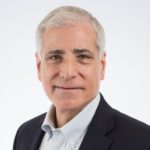 Robert Massa has been an enrollment professional in higher education since 1974 and was on the admission/financial staff at Colgate University and Union College before becoming the dean of enrollment at Johns Hopkins University in 1989. In 1999, he became the vice president for enrollment at Dickinson College and in 2009, moved to Lafayette College, as VP for marketing and communications. He joined Drew University, first as a consultant and then as their senior vice president in January, 2015 and retired in May, 2019. Massa teaches in USC’s Enrollment Management and Policy masters program, has authored chapters in six books, and is a frequent contributor to Inside Higher Ed and The Chronicle. He also serves as the chair of the board of the Character Collaborative. Massa earned a bachelor’s degree from the University of Rochester and a doctorate in higher education from Columbia University.
Robert Massa has been an enrollment professional in higher education since 1974 and was on the admission/financial staff at Colgate University and Union College before becoming the dean of enrollment at Johns Hopkins University in 1989. In 1999, he became the vice president for enrollment at Dickinson College and in 2009, moved to Lafayette College, as VP for marketing and communications. He joined Drew University, first as a consultant and then as their senior vice president in January, 2015 and retired in May, 2019. Massa teaches in USC’s Enrollment Management and Policy masters program, has authored chapters in six books, and is a frequent contributor to Inside Higher Ed and The Chronicle. He also serves as the chair of the board of the Character Collaborative. Massa earned a bachelor’s degree from the University of Rochester and a doctorate in higher education from Columbia University.
Bob Massa began the panel discussion by noting the humble goal of articulating from the viewpoint of practitioners where to go from here. What specifically can we do to ignite systemic change? And drawing from a tweet by Eric Hoover, an editor at The Chronicle of Higher Education, what are we willing to give up to do so?
Long before Varsity Blues, college admissions favored mainstream students of privilege. Universities are finding themselves in turmoil at a level that we have not seen since the Vietnam protests. Government support is waning, and colleges are no longer trusted to be transparent. How merit is defined and measured and how that influences how students are admitted and aid is awarded, price-sensitivity, discounted admissions practices (which relates to increased costs), test-optional and holistic policies, and more puts an uncomfortable spotlight on college admissions. It is understandable that the public is skeptical. It is indeed time for a national conversation and assessment of our practices. Necessary changes could result from a well coordinated national approach. With this, Massa challenged the panelists to articulate action items that can be taken or proposed.
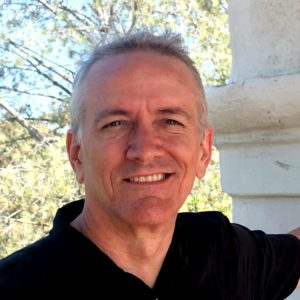 Jonathan Burdick became the first chief enrollment leader for Cornell University students in Ithaca and at Cornell Tech in NYC in 2019. Burdick manages the directors of admissions, financial aid and student employment, enrollment compliance, and the University Registrar. In a new effort to ensure Cornell’s enrollment activities reflect best practices in outreach, review, funding, compliance, academic progress, and industry leadership, he also co-supervises the enrollment staff in each of Cornell’s six colleges, five professional schools, and the Graduate School. Burdick’s activities require engagement across the intersections of University student life and a wide set of public and professional associations.
Jonathan Burdick became the first chief enrollment leader for Cornell University students in Ithaca and at Cornell Tech in NYC in 2019. Burdick manages the directors of admissions, financial aid and student employment, enrollment compliance, and the University Registrar. In a new effort to ensure Cornell’s enrollment activities reflect best practices in outreach, review, funding, compliance, academic progress, and industry leadership, he also co-supervises the enrollment staff in each of Cornell’s six colleges, five professional schools, and the Graduate School. Burdick’s activities require engagement across the intersections of University student life and a wide set of public and professional associations.
Burdick holds a B.A. in Economics from the University of Southern California. He had assembled a 34-year career as an enrollment leader at USC and the University of Rochester—where he led the transition to test-optional admission—before arriving at Cornell. His principal areas of practitioner focus have been expanding equity and opportunity for underserved students in the United States; achieving transformative breadth and depth in international enrollment; and leading innovation in admissions and financial aid review. He is or has been a member-leader for numerous professional organizations including the College Board, the Educational Testing Service, the International Baccalaureate Organization, the Council of International Schools, and the National Association for College Admission Counseling (NACAC). Burdick received NACAC’s award for “Inclusion, Access, and Success” in 2016.
John Burdick emphasized messaging as critical, including more humility (talking to industry rather than just each other) and an ethical responsibility to connect borrowing to the outcomes (which includes the incomes).
Burdick pointed to the idea of growing, as a selective universities, as a promising strategy and the equity opportunity related to Latino students. Cornell itself will grow its enrollment by 3-4%, with all of that growth for students who need financial aid.
Finally, he added that we need to reimagine every tool that we have. Can AI, software, data science help make the process more efficient? Reading 50,000 applications at Cornell is an industrial process–no less more than 100,000 applications at a UC.
 Youlonda Copeland-Morgan is the Vice Provost for Enrollment Management at UCLA. Through her role, she achieves the University’s undergraduate enrollment goals and has oversight for undergraduate admission, financial aid and scholarships, Early Academic Outreach Program, BruinCorps, as well as strategic community outreach functions. Copeland-Morgan has been a recognized leader in higher education formore than 35 years. She was a two-term chairman of the Board of Trustees for College Board and served an additional 7 years on the Board of Trustees. She was inaugural Vice Chair of the College Board’s Advocacy and Policy Center. Copeland-Morgan served as an expert witness in a Town Hall Meeting to Vice President Joe Biden and has served for nearly a decade on the Gates Millennium Scholars Advisory Council. She has testified before the U.S. House of Representatives and the California State Legislature.
Youlonda Copeland-Morgan is the Vice Provost for Enrollment Management at UCLA. Through her role, she achieves the University’s undergraduate enrollment goals and has oversight for undergraduate admission, financial aid and scholarships, Early Academic Outreach Program, BruinCorps, as well as strategic community outreach functions. Copeland-Morgan has been a recognized leader in higher education formore than 35 years. She was a two-term chairman of the Board of Trustees for College Board and served an additional 7 years on the Board of Trustees. She was inaugural Vice Chair of the College Board’s Advocacy and Policy Center. Copeland-Morgan served as an expert witness in a Town Hall Meeting to Vice President Joe Biden and has served for nearly a decade on the Gates Millennium Scholars Advisory Council. She has testified before the U.S. House of Representatives and the California State Legislature.
Copeland-Morgan is a member of the College Board’s distinguished College Scholarship Service Hall of Fame and recently received the National Association of College Admission Counseling’s Gayle C. Wilson Award for leadership and outstanding devotion to students and the Admission Counseling Profession.
Youlonda Copeland-Morgan reflected on her own pursuit towards an MBA and Wall Street and found her way to this important work 40 years ago.
She proposed three solutions:
- Create holistic financial aid policies. There is a lot of emphasis on holistic admission but not holistic financial aid. If you look at your financial aid policies and put your money where your mouth is, you will see success. We stand for more than getting students in the door. As enrollment officers, the work is about getting them prepared, in, and out of higher education. We are not getting them through or out and if we did a better job focusing on the student experience that enables them to get through, we would make progress in regaining public trust. The quality of experience will also relate to the quality of engagement as alumni.
- Conduct a courageous equity assessment. This goes beyond the admissions office. If we are really committed to equity, there should be evidence of this beyond admissions and evident throughout the institution. It should be evident in the Board of Trustees, composition of faculty, staff, and students.
- Own our positions and lead the efforts. Enrollment officers have more power to lead that we may recognize. She wants us to “own” the agenda item of equity. Too often we hold on to data (e.g. student demographic data) that if shared more widely, could help with spreading notions of equity.
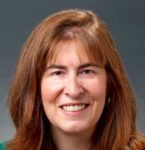 Stefanie Niles currently oversees the offices of admission, financial aid, and communications in her role as Vice President for Enrollment and Communications at Ohio Wesleyan University. During her 23-year enrollment career, Stefanie has served in leadership positions at Dickinson College, Hollins University, Bryn Athyn College, and DePauw University.
Stefanie Niles currently oversees the offices of admission, financial aid, and communications in her role as Vice President for Enrollment and Communications at Ohio Wesleyan University. During her 23-year enrollment career, Stefanie has served in leadership positions at Dickinson College, Hollins University, Bryn Athyn College, and DePauw University.
She is the immediate past-president of the 15,000-member National Association for College Admission Counseling (NACAC), the leading national organization for college admission professionals. In 2017, Stefanie was the recipient of a Fulbright grant to examine the system of higher education in France. She has completed the Harvard Institute for Educational Management and the Educational Leadership Academy co-sponsored by the CIC and the AASCU. Stefanie holds a Bachelor of Arts degree in English from the University of Virginia, a Master of Science in education from Indiana University, and a Doctor of Education in Higher Education Management from the University of Pennsylvania.
Stefanie Niles spoke next, sharing promising strategies. She began with a call for willingness to see our institutional missions evolve. We must be able to challenge our senior leaders and as enrollment leaders bring our knowledge to the table as they examine and reexamine missions.
Next, Niles asked, do we want the federal government to lead the conversation around change? Depending on the administration, the perspectives will change and we need consistency to move forward. Can we afford the consistency if we are relying the federal government in that way?
Niles echoed the previously noted notion that we need to not only tell our stories and do our jobs better. She also suggested that smaller scale and local achievements can set the condition for systematic change. Niles noted that institutional differences make universal solutions challenging.
An open discussion continued, elaborating on each of the points above.
Closing Remarks. A Call to Action. Jerome Lucido (USC), Don Hossler (USC Indiana University), Robert Massa (Dickinson College; USC)
Jerry Lucido closed the conference reminding the group of our hope at the outset which was to begin a national conversation. We are going to be aggressive about trying to find some structure around this: seeking funders, taking you up on your offers to be involved, and other actions to create more opportunities to explore these issues. Imagine if we had the voices that were assembled from the podium involved in a national panel that would seek recommendations related to transparency, public policy, and more. There is a big agenda here and we will find ways to continue to engage in the discussion. Lucido invoked Marta Tienda, noted sociologist at Princeton University, with her call to “yield the demographic dividend.”
Don Hossler echoed the support for a national panel, noting that there were times when the government has stepped up, but we must also keep the little things in mind. Hossler warned that if we are not careful we will put small, liberal arts colleges out of business.
Bob Massa weighed in and asked us to consider what the world would look like if we did nothing. He noted that he was less optimistic that we can individually and collectively lead by example. Massa notes that having high powered national leaders producing a tremendous report may not be the best road to change. We must think very clearly about how we are targeting our limited financial resources and who it is really benefiting, and find a way to galvanize action.

